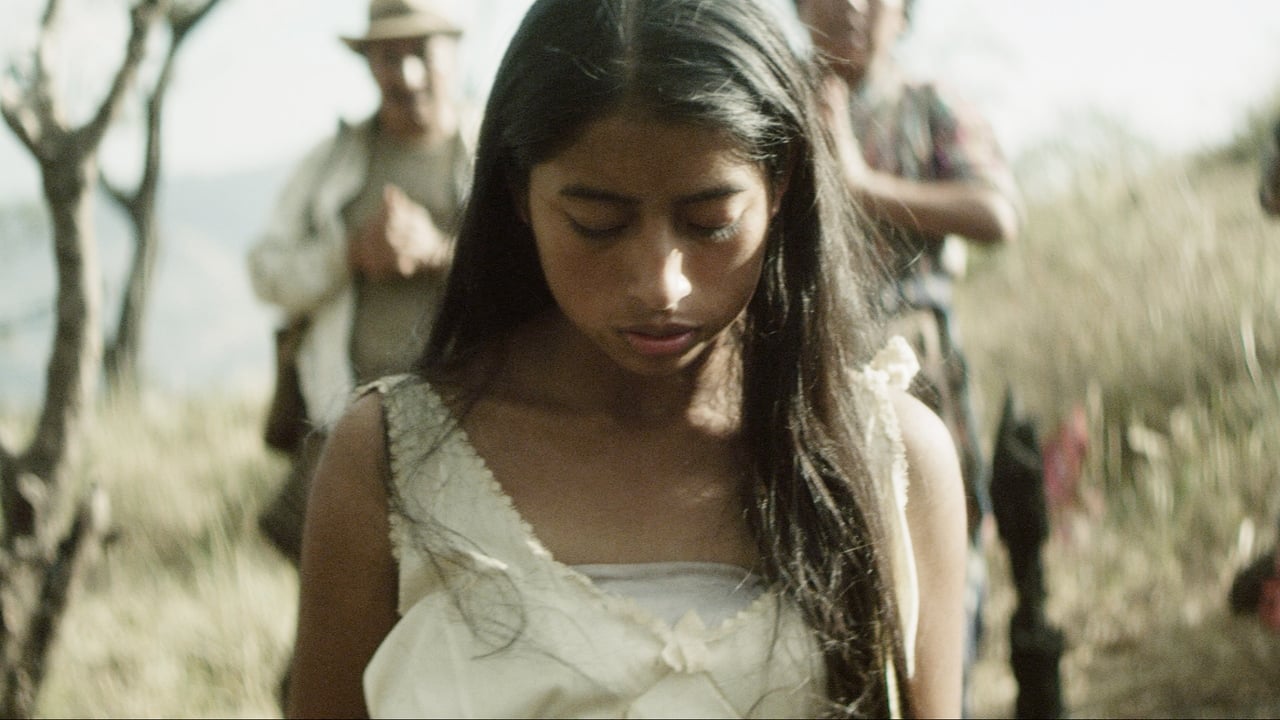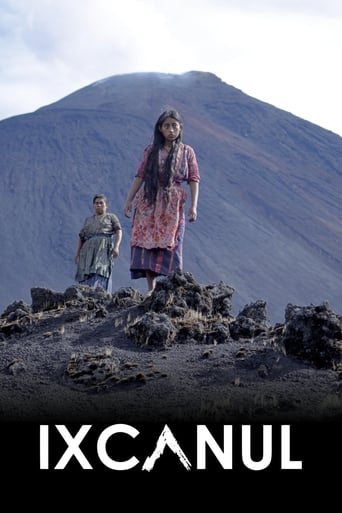



Dreadfully Boring
It is interesting even when nothing much happens, which is for most of its 3-hour running time. Read full review
View MoreAmazing worth wacthing. So good. Biased but well made with many good points.
View MoreThere are moments that feel comical, some horrific, and some downright inspiring but the tonal shifts hardly matter as the end results come to a film that's perfect for this time.
View MoreIxcanul has stunning cinematography and is brimming with passion and originality, but it might not be the best choice in terms of cultural accuracy. While it is impressive that native Kaqchikel speakers were cast to give it an authentic, indigenous feel, the representation of the Kaqchikel people is not its best. I will not claim to be an expert on the topic, but after speaking with and reading a paper about the film written by a Kaqchikel woman, Ixcanul provides the in-depth view from an obvious outsider, one who hasn't done enough research. According to her, the Kaqchikel view all life as sacred and worthy of respect, so moments when María uses a tree as a sort of dildo and when she attempts to abort her fetus are wildly unrepresentative of the culture.Looking beyond these shortcomings, it is still a good tool for a superficial observation of Kaqchikel culture. While the baby kidnapping, arranged marriages, and belief in magic and superstition may be stereotypical, they still portray real aspects of some indigenous Central Americans' lives. The manipulation of Kaqchikel individuals because of their language barrier is indisputable, as is indigenous people's poverty and often impecunious plantation life. This may be the film's message—that we are treating cultures like the Kaqchikel unfairly, and perhaps the film's own inaccuracies reinforce that thought.These high and low points aside, the film is still attractive, with expert parallel framing with María and her mother in the bath, and again with María and el Pepe before they have sex. Its long, sweeping takes of María descending the volcano balance with the stills of locals hanging at a bar or with family (these scenes themselves seem almost like neoclassical paintings). The movie is masterfully executed and naturally aesthetically-pleasing in terms of camera-work and scenery, but as a means of storytelling it falls behind somewhat because of its imperfect perception of its own subject matter.
View MoreIxcanul is a cinematic chef-d'oeuvre that sheds light on the plight of many indigenous Guatemalans who suffer from almost unfathomable levels of economic, social, and political exploitation. The film has many heart-breaking moments where the powerlessness of the film's protagonists comes through in a way that feels deeply real and authentic. One of the most interesting aspects of this films is that it is the first feature film created in Kaqchikel, one of the many indigenous Mayan languages of Guatemala. The actors are all native speakers of Kaqchikel, and the filmmakers overcame significant difficulties to assemble the cast that they did. The fact that the actors are so inexperienced makes the film all the more incredible because it did not at moment seem faked, at least for me. I would also like to address some of the criticism that has been levelled at the film and the filmmakers. The problem of orthography, that the title uses a c instead of a k, following modern (instead of colonial) spelling conventions, seems like minutiae compared to all of the positive work the film does in raising awareness of many of the problems indigenous Guatemalans face on a routine basis. Many also say the film only reinforces stereotypes about indigenous peoples in Guatemala and in the Americas more broadly. In that for many people this film will be their first exposure to contemporary Mayans, there is a risk of Ixcanul becoming a single story that defines an entire people. But it is the choice of the spectator to determine whether or not he/she will extrapolate stereotypes about an entire people from the portrayal of one family in one village at one specific point in time. However, if you look beyond these somewhat valid criticisms, you will see a cinematic masterpiece that will make you look at the world in a different way.
View MoreFor a Mayan family of three living on misty and sable volcano slopes, snakes come in both reptile and human form. Blessings are bestowed upon the family as well. 17 year old Maria dreams of life on the other side of the volcano. This place she dreams of, stretching from the other side of the volcano, across all of Mexico and into the United States, is nowhere that anyone she knows has ever been. Yet her pleasant life picking coffee, cooking and taking care of farm animals is too sedate for her. She intends to bolt from an arranged marriage with her father's boss. In doing so she sets herself up for confrontations between needs; company and independence, city and country, adventure and stability, Mayan and Spanish, and more. In this struggle the real character of Maria will become more apparent.If exquisite cinematography is your thing, you will like this unlikely yet appealing pairing of Guatemala and France. The acting is more convincing for the local talent, for even the best actors in the world would not make convincing Mayans. Kaqchikel is the film language. Ixcanul is available by Netflix snail mail delivery, a delivery that matches the gentle and pleasing pace of the film.
View MoreI've long been interested in Mayan mythology and culture, so when I heard about a new movie from Guatemala in the Maya language, I knew it was a film I wanted to see. "Ixcanul" is the Maya word for volcano, which looms large in the film, both physically and as a psychological barrier between this village and the rest of the world.Maria is a teenage girl, beautiful and bold. She lives with her parents, their only child, on a coffee plantation. Her parents have arranged her marriage to the plantation foreman, but neither seem particularly enthused about it. Instead, Maria dreams of escaping to the United States with a local worker. Despite her best attempts to get Pepe's agreement to take her with him North, she never secures a committed response. Her actions, however, have significant repercussions for her and her family.This could be a film about the uncaring and unsympathetic corporate owners of the plantations, or it could be about the ignorance of peasant life in the Guatemalan villages, or it could be a film that romanticizes North American culture and lifestyle, but it is none of these things. What it is, is an intimate and honest story of a brief moment in time of a family caught on the crossroads of tradition and modernity. "Ixcanul" is Guatemala's first entry in the Academy Awards for Foreign Language Film, and it certainly deserves to win. I am intrigued by the language and have a few unanswered questions, so it is likely I will pick this one up for the collection when released.
View More